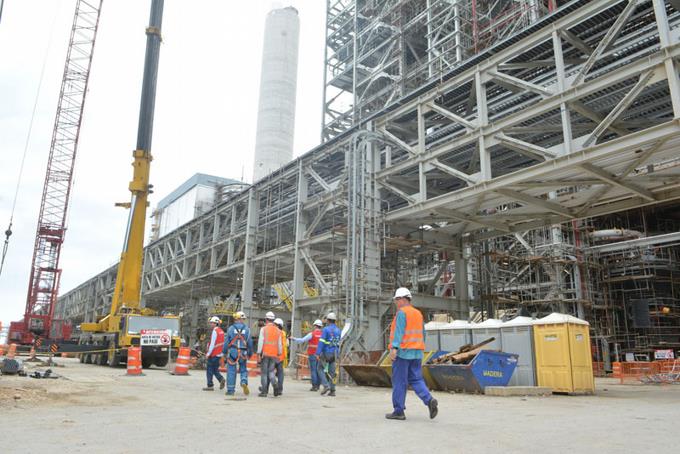
The Dominican government announced it reached an agreement with Odebrecht-Technimont-Estrella consortium “to settle all existing disputes and guarantee completion and final delivery of the coal-fired Punta Catalina Thermoelectric Center (CTPC). The Presidency had scheduled the inauguration of the two coal-fired units of 376 MW units of the coal-fired power central for 16 March 2020. The inauguration was postponed due to Covid-19 complications.
As part of the settlement, the Dominican government commits to pay US$59.5 million “gradually and to the extent the consortium completes, within certain deadlines, the remaining works. The Dominican government had already advanced a US$336 million contingent fund in June 2018 to secure continuation of works that will be accredited to the payment of the US$395.5 million settlement.
The agreement was reached within the framework of the International ADR Center of the International Chamber of Commerce (ICC), the Dominican government through the Public Electricity Corporation (CDEEE) and the consortium of Brazilian, Italian and Dominican engineering firms. The mediation was conducted by Mercedes Tarrazón, described as a renowned international mediator.
The Dominican Government was represented by US-based law firms Foley Hoag LLP and Manatt, Phelps & Phillips, LLP, and advised, throughout the entire process, by the century-old US-based engineering firm Stanley Consultants, Inc. The Odebrecht-Tecnimont-Estrella Consortium was represented by the law firm Clifford Chance US LLP. The Dominican government announced through its US public relations firm Rubenstein Public Relations.
The operation and maintenance of CTPC are carried out with the assistance of General Electric, who supplied the turbines and generators. CTPC’s projected revenues are estimated at US$ 550 million annually, with an EBITDA of US$ 250 million annually. The annual positive impact of CTPC on the public sector’s finances is estimated at between 0.4% and 0.5% of the country’s GDP.
In an opinion piece in Acento, electricity sector specialist Bernardo Castellanos explains that the government would have to take a big loss if it goes ahead with plans to sell a significant share of the power plant to private investors. He estimates the power plant has cost upwards of US$3.2 billion and would have to be sold for around US$2 billion to guarantee to the investors a 15% yield, with Dominican taxpayers picking up the loss of around US$1 billion on the controversial power plant.
Castellanos criticizes the intent of the Medina administration in going ahead with the sale. The results of the municipal elections and major polls clearly indicate the ruling party is unlikely to be in government come August 2020. Luis Abinader, the opposition party presidential candidate, has spoken against to the fast-tracking of the sale.
Read more:
Business Wire
Listin Diario
El Caribe
Acento
18 March 2020

